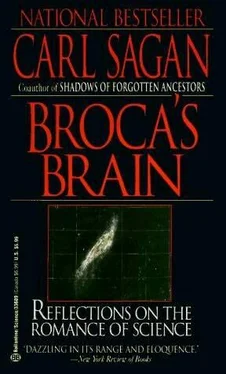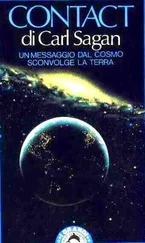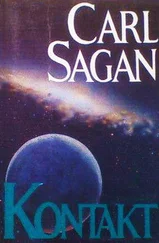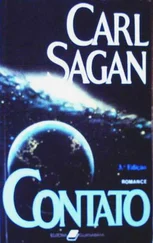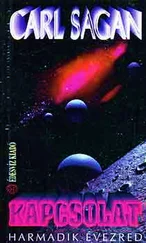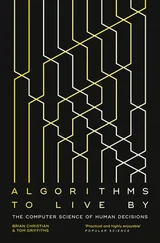Carl Sagan - Broca's Brain - The Romance of Science
Здесь есть возможность читать онлайн «Carl Sagan - Broca's Brain - The Romance of Science» весь текст электронной книги совершенно бесплатно (целиком полную версию без сокращений). В некоторых случаях можно слушать аудио, скачать через торрент в формате fb2 и присутствует краткое содержание. Жанр: Физика, на английском языке. Описание произведения, (предисловие) а так же отзывы посетителей доступны на портале библиотеки ЛибКат.
- Название:Broca's Brain: The Romance of Science
- Автор:
- Жанр:
- Год:неизвестен
- ISBN:нет данных
- Рейтинг книги:3 / 5. Голосов: 1
-
Избранное:Добавить в избранное
- Отзывы:
-
Ваша оценка:
- 60
- 1
- 2
- 3
- 4
- 5
Broca's Brain: The Romance of Science: краткое содержание, описание и аннотация
Предлагаем к чтению аннотацию, описание, краткое содержание или предисловие (зависит от того, что написал сам автор книги «Broca's Brain: The Romance of Science»). Если вы не нашли необходимую информацию о книге — напишите в комментариях, мы постараемся отыскать её.
Broca's Brain: The Romance of Science — читать онлайн бесплатно полную книгу (весь текст) целиком
Ниже представлен текст книги, разбитый по страницам. Система сохранения места последней прочитанной страницы, позволяет с удобством читать онлайн бесплатно книгу «Broca's Brain: The Romance of Science», без необходимости каждый раз заново искать на чём Вы остановились. Поставьте закладку, и сможете в любой момент перейти на страницу, на которой закончили чтение.
Интервал:
Закладка:
While many recent borderline doctrines are widely promoted, skeptical discussion and dissection of their fatal flaws are not so widely known. This table is a guide to some of these critiques.
Bermuda Triangle:: The Bermuda Triangle Mystery-Solved ,
Laurence Kusche, Harper & Row,1975
Spiritualism:: A Magician Among the Spirits ,Harry Houdini, Harper, 1924
The Psychic Mafia ,M. Lamar Keene, St. Martin’s Press,
1976
Uri Geller:: The Magic of Uri Geller ,James Randi, Ballantine, 1975
Atlantis and other “lost continents”:: Legends of the Earth: Their GeologicOrigins ,Dorothy B. Vitaliano, Indiana UniversityPress, 1973 Lost Continents ,L. Sprague de Camp, Ballantine,1975
UFOs:: UFOs Explained ,Philip Klass, Random House, 1974
UFOs: A Scientific Debate ,
Carl Sagan and Thornton Page, eds.,
Norton, 1973
Ancient Astronauts:: The Space Gods Revealed: A Close
Look at the Theories of Erich von Däniken ,
Ronald Story, Harper & Row, 1976
The Ancient Engineers ,
L. Sprague de Camp, Ballantine, 1973
Velikovsky::: Scientists Confront Velikovsky ,
Worlds in Collision ::Donald Goldsmith, ed., Cornell
University Press, 1977
The Emotional Lives of Plants::“Plant ‘Primary Perception,’ ”
K. A. Horowitz and others, Science ,
189: 478-480 (1975)
A FEW YEARS AGO a committee of scientists, magicians and others was organized to provide some focus for skepticism on the border of science. This nonprofit organization is called “The Committee for the Scientific Investigation of Claims of the Paranormal” and is at 923 Kensington Avenue, Buffalo, N.Y. 14215. It is beginning to do some useful work, including in its publications the latest news on the confrontation between the rational and the irrational-a debate that goes back to the encounters between Alexander the Oracle-Monger and the Epicureans, who were the rationalists of his day. The committee has also made official protests to the networks and the Federal Communications Commission about television programs on pseudoscience that are particularly uncritical. An interesting debate has gone on within the committee between those who think that all doctrines that smell of pseudoscience should be combated and those who believe that each issue should be judged on its own merits, but that the burden of proof should fall squarely on those who make the proposals. I find myself very much in the latter camp. I believe that the extraordinary should certainly be pursued. But extraordinary claims require extraordinary evidence.
Scientists are, of course, human. When their passions are excited they may abandon temporarily the ideals of their discipline. But these ideals, the scientific method, have proved enormously effective. Finding out the way the world really works requires a mix of bunches, intuition and brilliant creativity; it also requires skeptical scrutiny of every step. It is the tension between creativity and skepticism that has produced the stunning and unexpected findings of science. In my opinion the claims of borderline science pall in comparison with hundreds of recent activities and discoveries in real science, including the existence of two semi-independent brains within each human skull; the reality of black holes; continental drift and collisions; chimpanzee language; massive climatic changes on Mars and Venus; the antiquity of the human species; the search for extraterrestrial life; the elegant self-copying molecular architecture that controls our heredity and evolution; and observational evidence on the origin, nature and fate of the universe as a whole.
But the success of science, both its intellectual excitement and its practical application, depend upon the self-correcting character of science. There must be a way of testing any valid idea. It must be possible to reproduce any valid experiment. The character or beliefs of the scientist are irrelevant; all that matters is whether the evidence supports his contention. Arguments from authority simply do not count; too many authorities have been mistaken too often. I would like to see these very effective scientific modes of thought communicated by the schools and the media; and it would certainly be an astonishment and delight to see them introduced into politics. Scientists have been known to change their minds completely and publicly when presented with new evidence or new arguments. I cannot recall the last time a politician displayed a similar openness and willingness to change.
Many of the belief systems at the edge or fringe of science are not subject to crisp experimentation. They are anecdotal, depending entirely on the validity of eyewitnesses who, in general, are notoriously unreliable. On the basis of past performance most such fringe systems will turn out to be invalid. But we cannot reject out of hand, any more than we can accept at face value, all such contentions. For example, the idea that large rocks can drop from the skies was considered absurd by eighteenth-century scientists; Thomas Jefferson remarked about one such account that he would rather believe that two Yankee scientists lied than that stones fell from the heavens. Nevertheless, stones do fall from the heavens. They are called meteorites, and our preconceptions have no bearing on the truth of the matter. But the truth was established only by a careful analysis of dozens of independent witnesses to a common meteorite fall, supported by a great body of physical evidence, including meteorites recovered from the eaves of houses and the furrows of plowed fields.
Prejudice means literally pre-judgment, the rejection of a contention out of hand, before examining the evidence. Prejudice is the result of powerful emotions, not of sound reasoning. If we wish to find out the truth of a matter we must approach the question with as nearly open a mind as we can, and with a deep awareness of our own limitations and predispositions. On the other hand, if after carefully and openly examining the evidence, we reject the proposition, that is not prejudice. It might be called “post-judice.” It is certainly a prerequisite for knowledge.
Critical and skeptical examination is the method used in everyday practical matters as well as in science. When buying a new or used car, we think it prudent to insist on written warranties, test drives and checks of particular parts. We are very careful about car dealers who are evasive on these points. Yet the practitioners of many borderline beliefs are offended when subjected to similarly close scrutiny. Many who claim to have extrasensory perception also claim that their abilities decline when they are carefully watched. The magician Uri Geller is happy to warp keys and cutlery in the vicinity of scientists-who, in their confrontations with nature, are used to an adversary who fights fair; but is greatly affronted at the idea of performances before an audience of skeptical magicians-who, understanding human limitations, are themselves able to perform similar effects by sleight of hand. Where skeptical observation and discussion are suppressed, the truth is hidden. The proponents of such borderline beliefs, when criticized, often point to geniuses of the past who were ridiculed. But the fact that some geniuses were laughed at does not imply that all who are laughed at are geniuses. They laughed at Columbus, they laughed at Fulton, they laughed at the Wright brothers. But they also laughed at Bozo the Clown.
Читать дальшеИнтервал:
Закладка:
Похожие книги на «Broca's Brain: The Romance of Science»
Представляем Вашему вниманию похожие книги на «Broca's Brain: The Romance of Science» списком для выбора. Мы отобрали схожую по названию и смыслу литературу в надежде предоставить читателям больше вариантов отыскать новые, интересные, ещё непрочитанные произведения.
Обсуждение, отзывы о книге «Broca's Brain: The Romance of Science» и просто собственные мнения читателей. Оставьте ваши комментарии, напишите, что Вы думаете о произведении, его смысле или главных героях. Укажите что конкретно понравилось, а что нет, и почему Вы так считаете.
